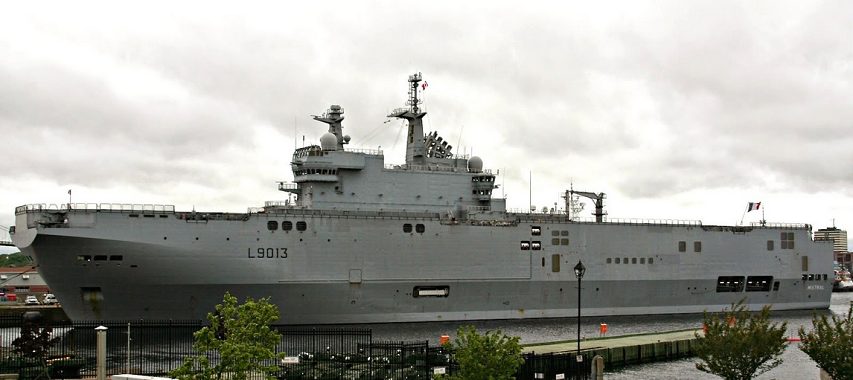
Europe According to the Vikings (1000) from Atlas of Prejudice 2 by Yanko Tsvetkov.
H/T to Never Yet Melted for the link.


Europe According to the Vikings (1000) from Atlas of Prejudice 2 by Yanko Tsvetkov.
H/T to Never Yet Melted for the link.
One of the reasons I’m a small-government fan is that the less the government tries to do, the less opportunity for rent-seekers and crony capitalists to batten on the inevitable opportunities that big government provides when it controls and regulates far beyond its competence:
A nice little point being made over in the New York Times, that for all of the public rhetoric about free markets and competition it’s not actually true that the Republicans are entirely pro-free market and pro-competition at all levels of governance. There’s an explanation for this too, an explanation that comes from the late economist Mancur Olsen. That explanation being about the level of the system that decides what will happen on a particular matter and thus where the special interests will try to capture governance.
Republicans have hailed Uber, the smartphone-based car service, as a symbol of entrepreneurial innovation that could be strangled by misplaced government regulation. In August, the Republican National Committee urged supporters to sign a petition in support of the company, warning that “government officials are trying to block Uber from providing services simply because it’s cutting into the taxi unions’ profits.”
Josh Barro then goes on to point out that while the national Republican party might be saying such fine words when we get down to the people who actually regulate taxi rides then local Republicans can be just as pro-taxis and anti-Uber as any group of Democrats.
[…] More likely, to me at least, is that Mancur Olsen had it exactly right. His point being that over time democracy will end up being a competition between special interests for control of that democratic apparatus. The basic background insight is spread costs and concentrated benefits. One analogy is the pig and the chicken deciding what to have for breakfast. If they decide upon bacon and eggs then the chicken is interested but the pig is rather committed there. So it is with the regulation of producers and the competition that they might faced. US consumers of sugar might be paying $50 a year each to protect US sugar producers (that number’s not right but it’s not far off, it’s not $5 each nor $500) but rationally, when there’s so much else for us to think about, it’s sensible enough for us to not get very excited nor angry about this. But the sugar producers are making millions a year out of that same system of restrictions and subsidies. They’re very interested indeed in making sure that it continues.
We who take taxis or Uber are quite interested in Uber (and Lyft and all the others) being able to continue in business. But it’s not the end of our lifestyle if the regulatory apparatus is able to stifle them. But for the people who, for example, own taxi medallions in NYC then the replacement of the traditional taxi market by Uber will mean the potential loss of up to $1 million for each medallion. They’re very much more interested in crimping Uber’s style than we consumers are in expanding it.
Olsen went on to point out that the special interests are obviously more interested than we are in the details of regulation. And they’ll concentrate their efforts at whatever level of the regulatory and democratic system it is that affects their direct interests. Contributing to election campaigns, making their views known and so on, wheeling and dealing to promote their interests.
Remember those palmy days of summer, when the French helicopter carrier Mistral visited Canadian waters for a joint exercise with the Canadian Army? I half-joking referred to it as Canada “kicking the tires” … but the idea hasn’t gone away completely. In the Ottawa Citizen, David Pugliese reported earlier last week that the International Business Times had run an article about it.

Halifax, Nova Scotia. FS Mistral (L-9013) is an amphibious assault ship, and lead ship of her class. She was commissioned in 2006. She features a landing craft dock, and helicopter facilities. Photo: Halifax Shipping News
The deal is worth $1.6 billion to $1.8 billion (different figures are out there) to the French. The Russians are interested in three of the ships. The French haven’t proceeded yet with the sale to Russia because of the situation in Ukraine.
But how probable is it that Canada would buy the Mistral-class ships?
Earlier this year, the Royal Canadian Navy was looking at buying surplus U.S. Navy supply ships. But that is not going to happen, RCN commander Vice Admiral Mark Norman told Defence Watch. What is being examined is the purchase of a commercial oiler (maybe).
The RCN is in dire need of an oiler/supply ship……not, at this point, an amphibious assault ship. So if there is an extra billion dollars or more around, the focus might be on acquiring an oiler/supply fleet to replace the decommissioned AORs.
Mistral-class ships are capable of carrying 16 helicopters, landing barges, up to 70 vehicles and 450 soldiers. They also come equipped with a hospital.
Canadian shipyards could also be expected to oppose such a purchase. There would be little for them (except maybe in-service support) in such an acquisition and they could argue that such a purchase would undermine the National Shipbuilding Procurement Strategy.
In September, I called the idea of Canada buying the Mistrals as the maritime equivalent of “pie in the sky”, despite a passionate article in the US Naval Institute News pushing the idea. They even showed what a Canadian Mistral would look like:

Mistral-class ship, Sevastopol configured as a NATO/Canadian Navy ship. CASR Image
So, on the surface, the idea isn’t likely to go anywhere for practical and economic reasons. But, a couple of days later Pugliese posted another article on the Mistral debate, responding to criticism from University of Ottawa professor Roland Paris:
If the Paris had actually read the articles in question he would have found out that the stories arose not from Hugh Segal’s comments from May but from the fact that the delegation led this week by French President François Hollande to Canada contained a significant contingent of the country’s defence industry representatives, including those from Mistral shipbuilder DCNS. That group included the firm’s diplomatic adviser.
In addition, sources have told Defence Watch that the delegation did indeed try to interest Canada in Mistral-class ships, as well as the FREMM class frigates.
Will they succeed with Mistral? Like I have mentioned a number of times at Defence Watch, including in the posting cited by Paris, the answer is likely no.
[…]
France, over the last two years, has embarked on a significant push into Canada to promote its defence products, particularly in the naval arena. With $35 billion on the table for shipbuilding who can blame them?
There was a specific reason a Mistral-class warship sailed across the Atlantic this summer to take Canadian soldiers on board for amphibious exercises. And it wasn’t about any close relationship between the French and Canadian militaries, although that might have played a minor role.
No, the French are interested in selling. They want to sell Canada warships, warship designs, and naval equipment like that on board the Mistral-class and the FREMM frigates. That is the reason the FREMM ship Aquitaine also visited Canada.
Personally, I’d love to see the RCN acquire a pair of Mistral-class ships, but they would not come cheap, they wouldn’t create a lot of jobs in Nova Scotia, Quebec, or British Columbia (and therefore wouldn’t be useful for gathering votes from those provinces), and they’d require the government to fully equip them … helicopters are extra. And we all know how the Canadian government can’t manage to say the word “helicopter” without wasting millions of dollars, never mind actually buying any.
I’m not familiar with the original, but I love the cover by Belarus group Stary Olsa:
H/T to Metal Injection:
Metallica is just rip for covering on unique instruments. Today, we hear what it would be like if it was covered in Medieval Times. Here is a band from Belarus doing just that.
We got to Waterloo at eleven, and asked where the eleven-five started from. Of course nobody knew; nobody at Waterloo ever does know where a train is going to start from, or where a train when it does start is going to, or anything about it. The porter who took our things thought it would go from number two platform, while another porter, with whom he discussed the question, had heard a rumour that it would go from number one. The station-master, on the other hand, was convinced it would start from the local.
To put an end to the matter, we went upstairs, and asked the traffic superintendent, and he told us that he had just met a man, who said he had seen it at number three platform. We went to number three platform, but the authorities there said that they rather thought that train was the Southampton express, or else the Windsor loop. But they were sure it wasn’t the Kingston train, though why they were sure it wasn’t they couldn’t say.
Then our porter said he thought that must be it on the high-level platform; said he thought he knew the train. So we went to the high-level platform, and saw the engine-driver, and asked him if he was going to Kingston. He said he couldn’t say for certain of course, but that he rather thought he was. Anyhow, if he wasn’t the 11.5 for Kingston, he said he was pretty confident he was the 9.32 for Virginia Water, or the 10 a.m. express for the Isle of Wight, or somewhere in that direction, and we should all know when we got there. We slipped half-a-crown into his hand, and begged him to be the 11.5 for Kingston.
“Nobody will ever know, on this line,” we said, “what you are, or where you’re going. You know the way, you slip off quietly and go to Kingston.”
“Well, I don’t know, gents,” replied the noble fellow, “but I suppose some train’s got to go to Kingston; and I’ll do it. Gimme the half-crown.”
Thus we got to Kingston by the London and South-Western Railway.
We learnt, afterwards, that the train we had come by was really the Exeter mail, and that they had spent hours at Waterloo, looking for it, and nobody knew what had become of it.
Jerome K. Jerome, Three Men in a Boat (to say nothing of the dog), 1889.
Powered by WordPress